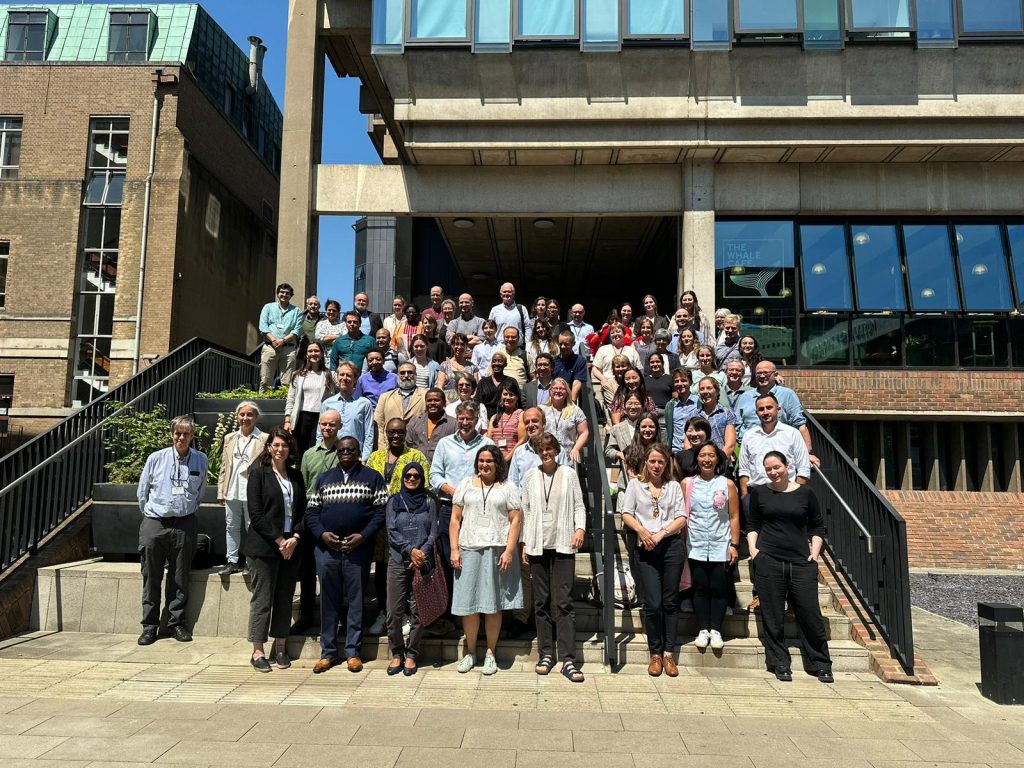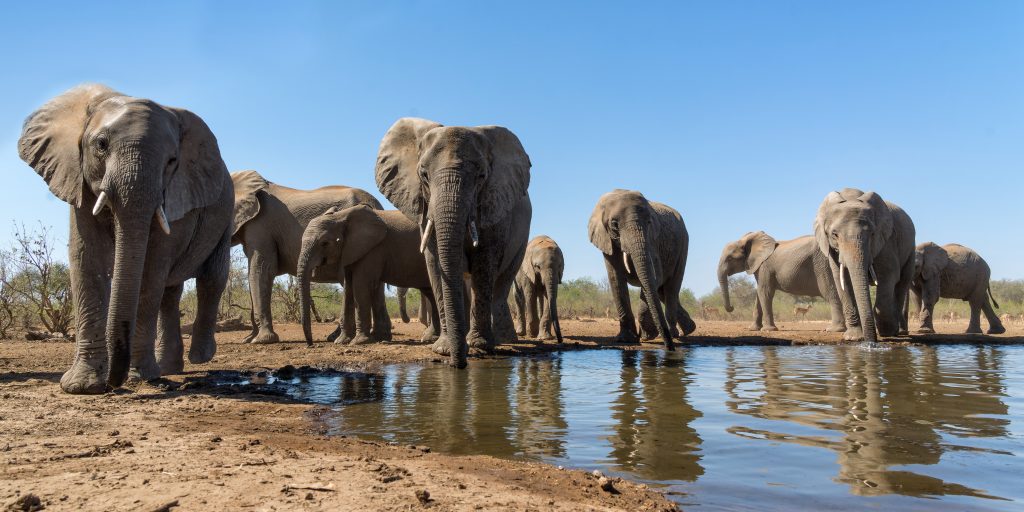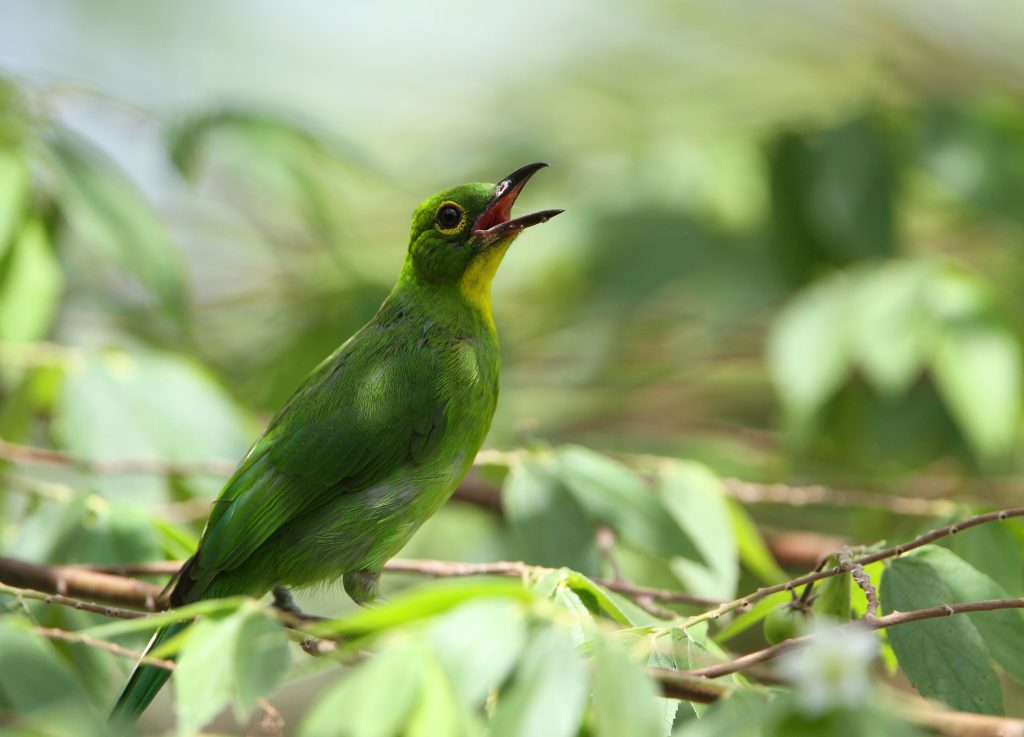News
10 of UNEP-WCMC’s key contributions to combatting the global nature crisis in 2023

Impact | Dec 2023
A momentous global agreement for nature signed at the end of 2022, the Kunming-Montreal Global Biodiversity Framework (GBF), spurred a busy and productive year at UNEP-WCMC.
Simultaneously, climate records were broken around the world in 2023 and pressures on biodiversity grew, making our work to secure a sustainable planet for people and nature more pressing than ever.
As we look forward to continuing this vital work in the new year, we look back over some of UNEP-WCMC’s key contributions to nature action over the past 12 months (more details of which will be available in our forthcoming 2023 Impact Report):
1. We immediately set about building capacity to start work on new global targets for nature
Throughout 2023, UNEP-WCMC has helped governments, businesses and financial institutions, and conservation and development partners around the world to take on board the targets set out in the GBF and make meaningful progress towards them.
We helped partners connect and work on a collective path towards the GBF’s target for protected and conserved areas to cover 30 per cent of the world’s land, inland waters, and oceans by 2030. Our experts also provided support to partners working on the global target to restore 30 per cent of degraded areas by 2030.

2. We provided powerful tools and resources to help governments track their progress on nature and take action…
UNEP-WCMC is a key technical support partner for the NBSAP Forum 2.0, which was launched in May. The Forum incorporates the targets and action themes of the GBF and related package of decisions, giving biodiversity practitioners an online space to connect and discuss issues related to the revision of National Biodiversity Strategies and Action Plans, as well as hosting a major library of related guidance resources, articles and e-learning training sessions.
We supported the development of the Data Reporting Tool for multilateral agreements (DaRT). In September, a UNEP-WCMC-co-organised workshop brought together, for the first time, China’s biodiversity-related MEA focal points to facilitate the use and uptake of DaRT, which streamlines the MEA reporting process, promotes synergies and lessens the burden on countries.
To help countries define and monitor the scale and potential impact of destructive fishing, UNEP-WCMC and partners developed a new illustrative framework. This tool seeks to overcome previous difficulties in reaching a globally shared definition of ‘destructive fishing’ and accounts for the importance of local context.
3. … and helped countries progress holistic assessments and action plans for nature
Throughout 2023, UNEP-WCMC’s National Ecosystem Assessment Initiative (NEA Initiative) continued its work helping countries better understand and integrate the value of biodiversity as they develop and implement national policies.
Our NEA Initiative team was at the 10th session of the Intergovernmental Science-Policy Platform on Biodiversity and Ecosystem Services (IPBES-10), networking with country partners, as well as hosting a side event on the utility of National Biodiversity Platforms. We were pleased to launch the NEA process with country partners in Botswana and Grenada, and towards the end of the year hosted the annual NEA Global Workshop in Cambridge to share knowledge and experiences and strengthen the initiative’s community of practice.

4. Our Nature Economy experts played a crucial role in developing major new reporting, disclosure and target-setting recommendations for businesses…
In September, eagerly anticipated recommendations to help businesses and financial institutions around the world both assess and report on their relationship with nature were launched: the Taskforce on Nature-related Financial Disclosures’ (TNFD) finalised disclosure framework.
The recommendations are the product of two years of development, consultation and piloting by hundreds of businesses and financial institutions, supported by expert scientific and standard-setting organisations, including UNEP-WCMC, which advises TNFD as a knowledge partner and has helped input into the development of the new reporting framework.
As a key partner to the Science Based Targets Networks, we both input into and welcomed initial targets and supporting guidance to help companies set biodiversity-related targets for freshwater and land sites. We have also supported the development of the upcoming revised biodiversity topic standard by the Global Reporting Initiative and the European Sustainability Reporting Standards that will be come into effect in early 2024 as part of the EUs Corporate Sustainability Reporting Directive.
5. … and supported implementation of these standards and frameworks through developing methods and guidance on assessment of impacts and dependencies on nature
We launched the Nature Risk Profile, a methodology that outlines metrics and data that enable companies and investors to measure and address nature-related risk. Building on this, we later released guidance giving businesses a clear process around what components need to be assessed to measure the full scope of nature dependencies, while setting out recommendations for the TNFD, financial institutions and businesses to promote robust dependencies measurement.
As part of the EU’s Align project we created guidance to help businesses navigate approaches to screening and measuring ecosystem condition in different decision-making contexts, alongside illustrative examples of how to measure biodiversity impacts at sites and across supply chains.
6. Our conservation scientists revealed wildlife issues in need of better understanding and increased protections…
UNEP-WCMC’s scientists published research that found that more than 900 species are likely threatened by the international trade in wildlife, but are not protected by the global agreement that regulates it, the Convention on International Trade in Endangered Species of Wild Fauna and Flora.
Our research also underpinned a central chapter in Royal Botanic Gardens Kew’s 2023 State of the World’s Plants and Fungi report. We identified 32 global “darkspots” where plant species are yet to be scientifically named, described and mapped, warning that a lack of data can lead to biased or incorrect scientific conclusions.

7. … and underscored how crucial ecosystem connectivity and changes to highly biodiverse regions are
Analysis led by UNEP-WCMC conducted the first-ever spatial assessments into the potential impact habitat loss has had on mangrove associated species around the world, in addition to assessing carbon storage and global economic reliance on mangroves. The team revealed that nearly half of relevant mangrove-associated mammals, 22 per cent of fish, 16 per cent of plants, 13 per cent of amphibians and eight per cent of bird and reptile species are now threatened with extinction.
Similarly underscoring the importance of protecting land for nature, researchers from UNEP-WCMC mapped transboundary conservation areas (TBCAs) across Africa and identified protected areas that could benefit from harmonised management as newly formed TBCAs. Subject to further consideration of local contexts, potential TBCAs could in total cover nearly 2,000,000 km2 - an area equivalent to the size of Mexico, or half the size of the EU.
8. We provided expert technical support behind a ground-breaking law to restore nature
UNEP-WCMC collaborated with partners to provide technical and scientific support to the European Commission to underpin its proposal for a ground-breaking EU Nature Restoration Law that was passed in July 2023. Our review of existing biodiversity information and reporting underpinned the impact assessment that informed the restoration targets set in the law. We also developed the rationale for the legislative proposal, assessed the degree of restoration required, proposed actions and analysed the economic costs and benefits of restoration.

9. We joined forces with partners to overcome barriers to ecosystem restoration in Europe
In September, following the approval of the EU Nature Restoration Law we announced that over the next three years UNEP-WCMC, in partnership with International and the RSPB, will bring together key stakeholders to generate collaborative solutions to restore ecosystems across Europe. Through dialogue and consultations, the Convening for Restoration project will identify solutions to overcome barriers to large-scale ecosystem restoration.
10. We continued to champion the crucial role of nature in meeting the world’s sustainable development and climate challenges
As the impacts of climate change become more pronounced around the world, our Nature-based Solutions (NbS) experts have deepened understanding of the vital role of nature in supporting people to adapt to climate change, and conversely how the loss of nature reduces our resilience to climate change. We tracked the final round of intergovernmental consultations on nature-based solutions, and were a prominent voice at COP28 urging climate leaders to champion high-integrity, properly financed NbS for climate change.
One of the most urgent impacts of climate change where NbS can make a huge difference for people and nature is drought and desertification. We engaged with a host of partners on the topic of sustainable water management – from work to safeguard the water-energy-food-ecosystem nexus to featuring in discussions at global events – and are now providing expertise to the UN Convention to Combat Desertification – a crucial area of work that we are eager to build on in 2024.
With 2024 set to be another busy year for nature advocacy and action – with key global nature-related negotiations on migratory species, biodiversity and climate throughout the calendar – we look forward to continuing our work supporting and collaborating with governments, the private sector and conservation partners to tackle biodiversity loss and deliver on the world’s vital global goals for nature.
Featured image credit: Arctic hare via Adobe Stock #129885437
Have a query?
Contact us
communications@unep-wcmc.org
